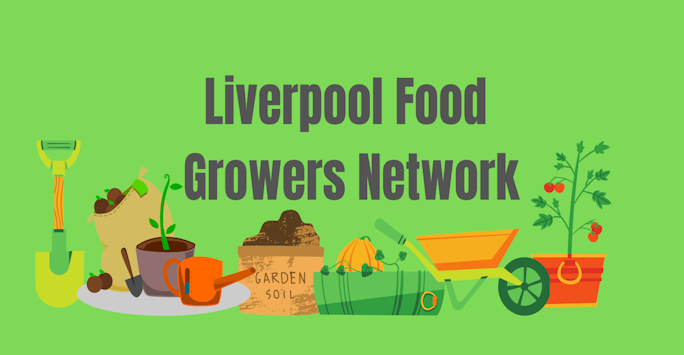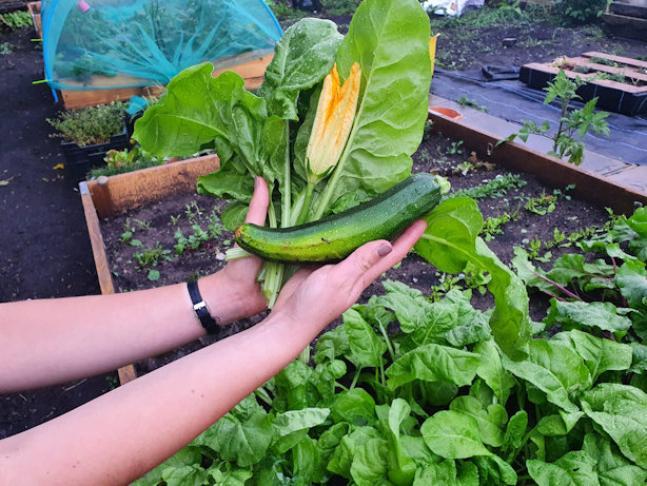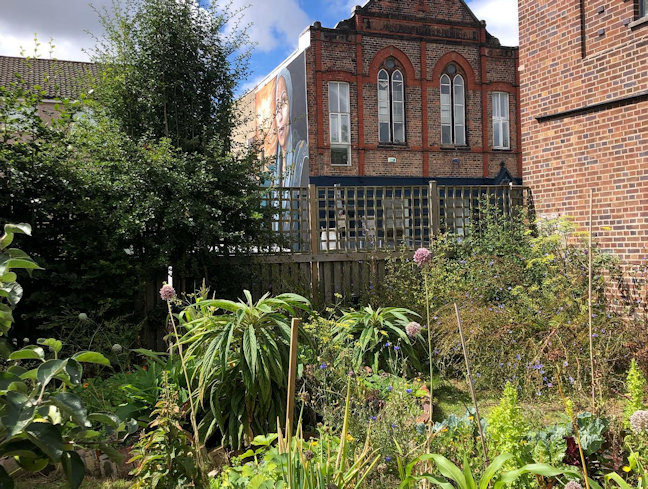The importance of urban food production
Posted on: 21 September 2022 by Clara Steiner in Issue 3

The Liverpool Food Growers Network (LFGN) brings together University of Liverpool researchers, food growing projects and partners from across the Liverpool City Region (LCR). Clara Steiner, former project manager for the Network, carried out research exploring the scale and scope of food growing in the region. Here’s what she discovered.
Our food system is in crisis. The UN predicts that by 2050 the global population will rise to 9.6 billion, while the latest report from the International Panel on Climate Change (IPCC) presents some terrifying, yet increasingly real, narratives of ecological decline. At the same time, the relationship between our cities and the food system has become increasingly geographically, politically, and economically complex. Urban areas now host the majority of the world’s population, with many cities already experiencing threats of ecological and societal instability. Furthermore, for the UK recent events such as Brexit and the Coronavirus pandemic have only further exposed the cracks in our already fragile food system. Thus, it has become critical that we reimagine how we grow, harvest, distribute and consume food, while reflecting on how our actions affect the planet and its people.
Urban agriculture, the growing, harvesting and distribution of food in cities, presents part of the solution. From an environmental perspective, urban food production can reduce emissions associated with transport, refrigeration and waste across complex supply chains, particularly for products that are transported by air. Research also suggests that getting involved with urban agriculture can increase the uptake of more sustainable and seasonal diets, while reconnecting people with nature.
Furthermore, diversifying the amounts and types of green spaces in our cities can benefit pollinating species, birds, insects and local mammals and creates pathways for the nutrients and carbon in organic waste to be returned to the soil, helping to maintain natural cycles of carbon storage and healthy ecosystems. From a social perspective, urban growing can enhance mental and physical wellbeing, strengthen communities and increase urban resilience to future climatic, political and economic shocks.

Courgette harvested from an urban garden
According to Feeding Liverpool, one in three people in Liverpool have experienced food insecurity in their lifetime and only 12% of children are eating their ‘five a day’. Furthermore, the prevalence of food banks has increased dramatically over the past few years. Thus, it is critical that the theme of food remains at the forefront of our region’s agenda.
The people of Liverpool City Region have a long history of creatively experimenting and reimaging the relationship between the food system and our urban landscape. From underground and rooftop farms, to back alley ways and repurposed brownfield sites, local residents are constantly challenging the normative political and physical structure of our urban spaces. Such people include beekeeping advocates, composting enthusiasts, gardening fanatics, and all who share a love for sustainable and healthy food. It is this imagination, dedication and resilience that the Liverpool Food Growers Network aims to harness and amplify.
The LFGN aims is to create and sustainably develop a collaborative network of food growing projects, organisations and related partners. Through this we promote, support and educate people to grow food sustainably using methods which improve biodiversity, soil ecology and enhance resilience to climate change. We also aim to increase the amount of fresh fruit and vegetables produced by community growers while working towards equitable access to fresh, healthy and local food. Overall, we hope that the network will help to improve our local environment, strengthen community resilience and fight for greater food justice.
This summer the LFGN has organised a series of community garden open days across the Liverpool City Region. This provides opportunity for people to visit the community gardens, meet like-minded people and learn about urban food growing. All information on upcoming events can be found on our social media listed below.

LFGN community garden
All of our member groups share a passion for creating a fairer, more sustainable and local food system, that will benefit all residents across the region. We would also like to take this opportunity to emphasise that no action is too small to make a change. Whether you shop at your local independent, give up some of your time volunteering for our community groups, grow food in your own garden or on your windowsill, we would love to hear how you are making this city’s food system just that little bit better.
To keep up to date with the Liverpool Food Growers Network, follow our social medias or email us at foodgrowers@liverpool.ac.uk:
- Facebook: https://www.facebook.com/LiverpoolFoodGrowersNetwork
- Instagram: @LiverpoolFoodGrowersNetwork
- Twitter: @livfoodgrowers
The development of the Liverpool Food Growers Network is funded by a BBSRC Impact Acceleration Award and builds on the inter-disciplinary research findings of the Rurban Revolution project
Keywords: Sustainability, Food, SDGs, Community, Liverpool Food Growers Network.